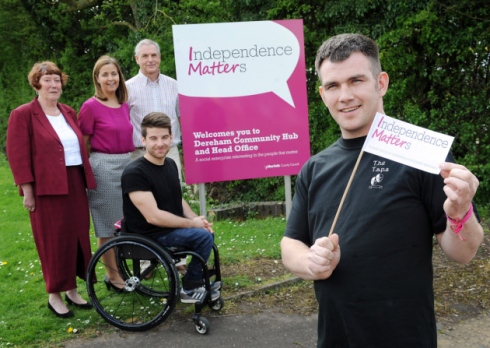Home
About Us
Page 2
In order to make these objectives achievable, the NHLBI Career Transition Award support two phases of research: a mentored intramural phase (two years) and an extramural phase (three years), for a total of five years of combined support.
|
|
The caveat of the program is that the transition from the intramural phase to the extramural phase will not be automatic, which means that the participants will have to undergo a progress review wherein their research plans will be evaluated.
The participants of the program will be joining the NHLBI Division of Intramural Research, wherein they will be conducting research studies on the normal and pathophysiologic functioning of the cardiac, pulmonary, blood, and endocrine systems and basic research on normal and abnormal cellular behavior at the molecular level.
To support these initiatives, the National Institutes of Health is ready to administer funds in the amount of $747,000.
The institutions and organizations who will be assumed eligible to submit an application under the National Heart, Lung, and Blood Institute Career Transition Award are the following:
a) Higher Education Institutions such as Public and Private Institutions of Higher Education
b) Nonprofit Organizations
c) For-profit Organizations Such as Small Businesses
d) State Governments, County Governments, City or Township Governments, Special District Governments, and Indian/Native American Tribal Governments
e) Independent School Districts, Public Housing Authorities/Indian Housing Authorities, Native American Tribal Organizations, and Faith-based or Community-based Organizations
National Heart, Lung, and Blood Institute Career Transition Award
Back to Page 1
About The Author Iola Bonggay is an editor of TopGovernmentGrants.com one the the most comprehensive Websites offering information on government grants and federal government programs. She also maintains Websites providing resources on environmental grants and grants for youth programs. |
Additional Resources
category - Health Grants
Cancer Education Grants Program
Behavioral Risk Factor Surveillance System
Eradication of HIV from CNS Reservoirs: Implications for Therapeutics Grant Program
International Research Collaboration on Drug Abuse and Addiction
Follow @topgovtgrant
Social Entrepreneurship
Spotlight
Dereham Day Services Center Celebrates New “Social Enterprise” Model

Independence Matters, the largest council-owned community interest and day services company, celebrates the success of its new social enterprise model that boost its care and support services to more than 1,450 people across Norfolk.
